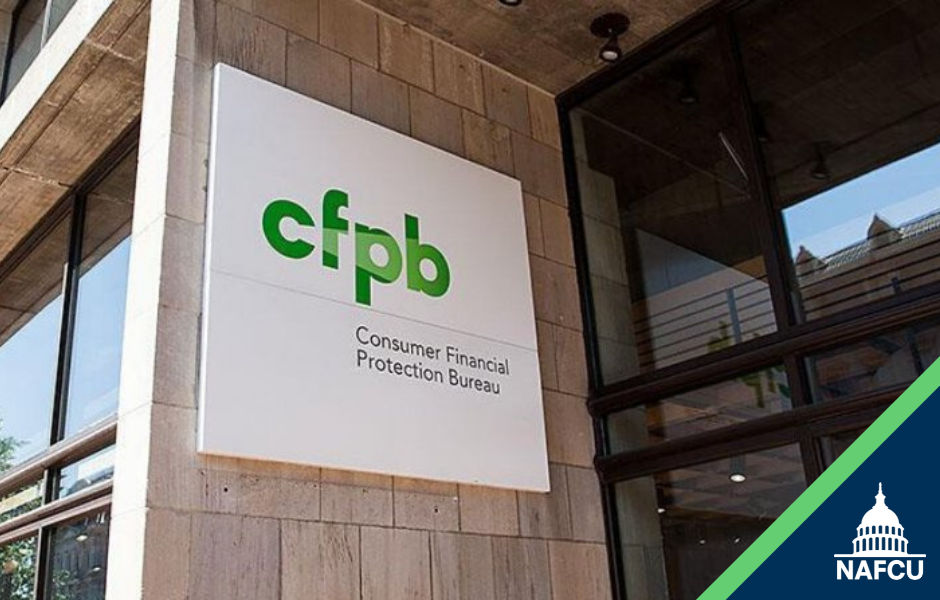Newsroom
CFPB touts efforts to measure impact of FIs overdraft programs
 The CFPB published a blog post Thursday regarding overdraft and non-sufficient fund (NSF) fees. The post describes the bureau’s supervisory efforts toward financial institutions “with a higher share of frequent over drafters or a higher average fee burden for overdrafts.”
The CFPB published a blog post Thursday regarding overdraft and non-sufficient fund (NSF) fees. The post describes the bureau’s supervisory efforts toward financial institutions “with a higher share of frequent over drafters or a higher average fee burden for overdrafts.”
Specifically, the post highlights the five consumer-impact metrics that the bureau has started asking financial institutions, including:
- the total annual dollar amount consumers receive in overdraft coverage compared to the amount of fees charged;
- the annual dollar amount of overdraft fees charged per active checking account;
- the annual dollar amount of NSF fees charged per active checking account;
- the prevalence of frequent overdrafters, or the share of active checking accounts with more than 6 and more than 12 overdraft and/or NSF fees per year; and
- the share of active checking accounts that are opted into overdraft programs for ATM and one-time debit transactions.
The bureau also included a more detailed set of questions on overdraft practices. They intend to use the information gathered from these questions to identify institutions for further examination and review. Of note, the bureau also praised the banks and credit unions that have changed their overdraft and NSF programs to be less reliant on fees.
Of note, NAFCU has previously written to Congress to express concerns about legislative efforts to limit overdraft fees, cautioning that legislative efforts to eliminate overdraft protection programs will likely result in significant negative impacts on borrowers and credit unions. Next Wednesday the House Financial Services Committee will hold a rescheduled markup of the Overdraft Protection Act, which was delayed this week when Committee Chairwoman Maxine Waters, D-Calif., tested positive for Covid. NAFCU has expressed concerns about the legislation and the impact it would have on credit union programs. In addition, the association has discussed overdraft fees in both a letter and joint trades letter submitting feedback to the CFPB on their request for information (RFI) regarding fees on consumer financial products and services, or "junk fees."
NAFCU will continue to monitor the CFPB’s actions on overdraft programs.
Share This
Related Resources
Add to Calendar 2024-06-26 14:00:00 2024-06-26 14:00:00 Gallagher Executive Compensation and Benefits Survey About the Webinar The webinar will share trends in executive pay increases, annual bonuses, and nonqualified benefit plans. Learn how to use the data charts as well as make this data actionable in order to improve your retention strategy. You’ll hear directly from the survey project manager on how to maximize the data points to gain a competitive edge in the market. Key findings on: Total compensation by asset size Nonqualified benefit plans Bonus targets and metrics Prerequisites Demographics Board expenses Watch On-Demand Web NAFCU digital@nafcu.org America/New_York public
Gallagher Executive Compensation and Benefits Survey
preferred partner
Gallagher
Webinar
Add to Calendar 2024-06-21 09:00:00 2024-06-21 09:00:00 The Evolving Role of the CISO in Credit Unions Listen On: Key Takeaways: [01:30] Being able to properly implement risk management decisions, especially in the cyber age we live in, is incredibly important so CISOs have a lot of challenges here. [02:27] Having a leader who can really communicate cyber risks and understand how ready that institution is to deal with cyber events is incredibly important. [05:36] We need to be talking about risk openly. We need to be documenting and really understanding what remediating risk looks like and how you do that strategically. [16:38] Governance, risk, compliance, and adherence to regulatory controls are all being looked at much more closely. You are also seeing other technology that is coming into the fold directly responsible for helping CISOs navigate those waters. [18:28] The reaction from the governing bodies is directly related to the needs of the position. They’re trying to help make sure that we are positioned in a way that gets us the most possibility of success, maturing our postures and protecting the institutions. Web NAFCU digital@nafcu.org America/New_York public
The Evolving Role of the CISO in Credit Unions
preferred partner
DefenseStorm
Podcast
AI in Action: Redefining Disaster Preparedness and Financial Security
Strategy
preferred partner
Allied Solutions
Blog Post
Get daily updates.
Subscribe to NAFCU today.
